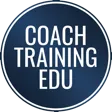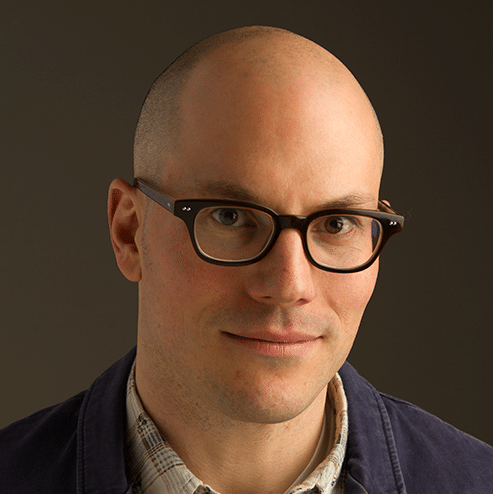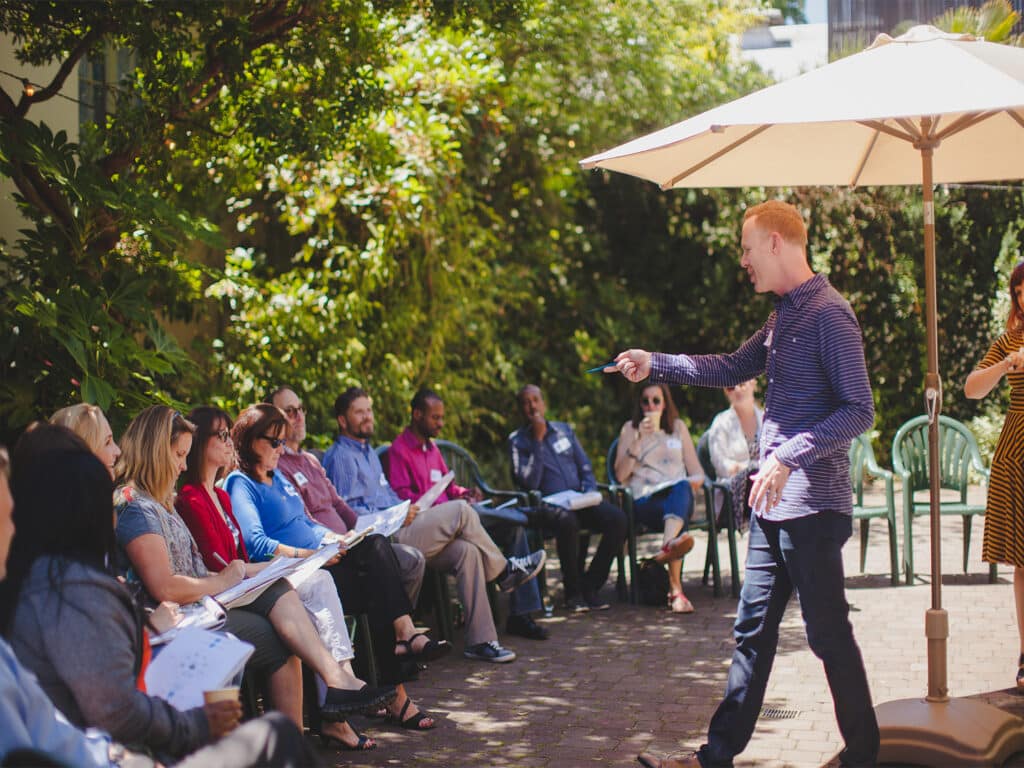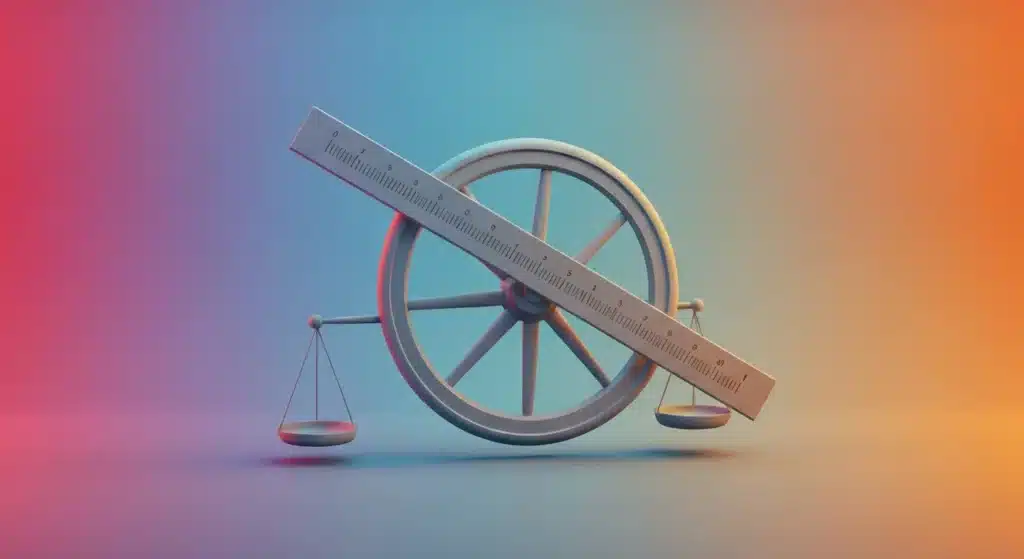Listen to the Podcast
Be Curious!
Raj Anderson and guest experts answer your coaching questions each week!
In Coaching to Flourish Season 3 Episode 6 our host CTEDU Assessor and Master Coach Raj Anderson and Coach Training EDU Founder and Master Coach John Andrew Williams discuss belonging & value from a variety of standpoints and how/if generational differences impact coaching strategies.
Live Transcript (unedited)
[Raj Anderson] All right! We’re live everyone!. Welcome to the Coaching to Flourish podcast, and I’m your host, Rad Anderson, Executive Life Coach and Coach Accessor. We’re changing things up, aren’t we, John?
[John Andrew Williams] We are.
[Raj Anderson] I’m gonna be the host. What’s happening?
[John Andrew Williams] I’m no longer the host of this, this segment, which I’m pleased about and more than happy and honored to give the reins over to Raj here in this space.
Uh, it’s part, I mean, I think it’s a natural evolution of, of where things are going. And I have the, uh, Let’s Life Coach, you know, daily videos that we’re developing. We’re still running into a little bit of a, I don’t know, obstacles of trying to figure out what exactly, uh, those videos are gonna look like in the structure of them and how to get them through, uh, you know, get them to publication.
But, um, with that shift, uh, I’m still gonna be here most weeks, but Raj is the official, official host, so, yay.
[Raj Anderson] Thank you John. I’m excited and honored and I’m also excited that we’ve got all these different resources for people now. So we will still have the Coaching to Flourish too for you to hear hot topics, you know receive valuable information on the coaching industry.
We’ve got our guest speakers and John is one of our guest expert speakers as well. And also send us your coaching questions to get your coaching questions answered. Yeah, I do wanna start, John, with the incredible video I just listened to on Be Your Life’s Hero by Chadwick Bozeman, and I’m really moved by that one in particular because I’m a huge Marvel fan.
I just watched Black Panther, Wakanda Forever, and Chadwick Bozeman is, is a, a real life hero of mine. You know, as we all know, he battled cancer for four years while still filming those Marvel movies. Um, he’s particularly special to me. We share a birthday, so he’s a real life superhero to me. But, uh, I was really interested in what you were saying, John, around legacy and you are learning from Laura Whitworth. And why did you pick the topic of superheroes this week?
[John Andrew Williams] I was, I was, uh, I was searching for a lot of Bozeman’s clips and he has a number of inspiring clips, and I think, so when, when Black Panther first came out, it was, I mean, the cultural significance of it is massive, and this idea that you have, uh, you know, uh, a figure, someone you can look up to, uh, who is black and who is a, an action hero, you know?
And, uh, even that was groundbreaking. And you think, well, why, why’d it take so long? You know, like, why? You know, it’s about time. And, uh, I was talking to a, so the movie came out, I was, I was in, I think it was, uh, was I in DC? I dunno. I I wasn’t at home. I was traveling. I was giving a talk somewhere. And I called up one of my buddies from college, uh, who’s an African American, he’s, uh, one, one of my dearest friends.
And we’re chatting and he’s talking to me about, uh, you know, this movie, what it meant for him. And he said, when he was growing up, he did not, there was, there was no, no black person dressed in that way, who was a professional, who was a businessman, who was successful, who had all this stuff. He said that that image alone, that representation matters. That gives generations of children someone to look up to.
And Chadwick Boseman is that person. And the significance of that is, is enormous. So that that alone, so yes. That video, I want to, you know, amplify his message, his voice, his legacy, and, uh, you know, it’s Black History month. Uh, and th this, so that’s, that’s the reason for this video, uh, right here. Uh, right now we have a couple more, uh, that are set to, to go, uh, that aren’t related to Boseman, but have similar themes of, you know, superheroes, people taking those big steps.
But Boseman, like a lot of what he did in his life, even before Black Panther, and moving the ball forward with representation and questioning stereotypes, uh, that to me is, is one of his biggest legacies, is really breaking down a lot of these stereotypes, in really powerful, iconic ways. And he’s, yeah, he, he’s, he’s a huge figure.
[Raj Anderson] Why do you think representation matters in coaching?
[John Andrew Williams] Coaching, I mean, is a pretty white profession still. Uh, it’s changing. Is it changing fast enough? I don’t know. Uh, I think wow. Representation matters so much more than I think a lot of people give it credit for. Um, and even talking about the idea of racism and, uh, you know, when you’re, when you are entering into these conversations, I feel like there’s a certain level of uncomfort that just immediately gets inserted into like, the space.
Um, especially, you know, people who, you know, especially white people who don’t have a lot of experience with, you know, being on the other end of racism. It’s, it’s like, you know, like when you’re having a conversation and then like, like someone says, oh, I had a family member who just passed away. There’s also a level of uncomfort and, and to me it feels remarkably, remarkably similar.
You’re like, they can’t do anything about it. They’re sorry about it, but they just don’t know how to handle it. And I’m sorry for your loss kind of thing. But, uh, there’s like eggshells immediately, like should show up everywhere. Uh, and I think it’s important to have these conversations. It’s important to be okay with the uncomfort and be in these spaces.
Human beings, like, we are meant to communicate. We are meant to be empathetic with each other, and this is a really important, this is, this is a hugely important topic that deserves to be talked about in the coaching world. The ICF has recently taken some spe, some steps in the positive direction to recognize this and to put some language into their recent, not so recent now, but it was a year or two now, a year and a half.
[Raj Anderson] Yeah.
[John Andrew Williams] Uh, where they change the standards. So I think it, I think it’s really useful to, um, yeah, I mean, I think the coaching profession itself, it’s, it is useful to have this awareness, uh, and from, and from the standpoint of the, the work that’s been done in belonging & value is so powerful. There are so many learnings and insights that are useful to the coaching profession and vice versa.
There are a lot of insights that happening in coaching profession that, that are also useful to the belonging & value work. And, uh, I’m just, I’m just humbled and thankful to be a part of it and to move the ball forward in any way I can.
[Raj Anderson] And we did do a program, didn’t we, about a year last year on, uh, Inclusion Coaching for Coaches, and so I guess a few things for coaches to think about, you know, who is in your circle of influence? You might wanna check out the Diversity Wheel from John Hopkins as well. So how can we as coaches, become more inclusive? Perhaps there’s a question you wanna ask yourself. You know, how do you meet your clients where they’re at?
What kind of curious questions do you ask? Even in that first initial meeting. I think I’ve talked about this before, John. I do ask inclusion questions. I’m quite particular and asking people what they wanna be called or what do they identify with, or what diversity facets are important for me to know about them so that I can think about how I might adapt my style of coaching.
What are your thoughts on that?
[John Andrew Williams] Yeah, I think it’s brilliant and it’s, it’s totally part of, I think what makes you an amazing coach, and an example is, yeah, these are really important, the intake form and to ask these kind of questions and to really, I mean, we, we can also go the other way too, where we make assumptions based on, you know, uh, you know, even assumptions based on cultural awareness.
But people, you know, it is not like everyone who dresses or, you know, is as of a certain religion has a certain diet. You can make assumptions, but you don’t know for sure. So, you know, you can, you can go the other way too, of being overly culturally sensitive, but I, I think the, the thing that I come back to, and I think what helps a lot for like to really facilitate this conversation is that if, if, if someone makes a mistake, like we, you know, your intentions are good, but you make a mistake, the best thing to say is, thank you for letting me know and I’m doing my best.
I’m doing my best. I really wanna be better. Thank you. How can I go, and, and then to recognize it’s not even the person who’s telling you, it’s not even, uh, the person’s job to, to educate you. It’s our own. I mean, it’s our own responsibility to educate ourselves and all the resources are there. It’s not like this, these are unknown or we have to uncover them.
No, no. They’re all there. They’re all known. But if, if you make a mistake or if it doesn’t go the way you, you know, if someone, uh, like there, there was, uh, in the World Cup when U.S. and Iran were, uh, in the World Cup, that one reporter asked, uh, one of the players, uh, who, uh, about racism in the United State, and the reporter started with, you’re saying Iran incorrectly. Like it’s Iran, not Iran, and get it right, like everyone in the US does it. And, and the, and so that was the beginning part. He started, like, the report started like that and then he said, well, how are you doing with, you know, dealing with racism in the United States?
The player was black and he modeled it. So, I mean, it was almost like he said, first off, thank you for letting me know how to pronounce your country’s name. I’m sorry. I wanna do better. I will get there. And then, and then he went on to say, well, the United States, at least there’s a conversation around it.
We at least have this, this conversation is open. In other parts of the world it’s not really that open, but you can’t confuse the conversation that’s happening here in the United States with, uh oh, then that means that it’s, the problem here is worse in the United States than anywhere else in the world. You know, you can’t confuse those two.
So that, that’s really helpful for, for people, for white people to know that you’re going to make mistakes. You’re going to, you know, you’re, you’re, there are blind spots, and when that happens, to stay in gratitude and not try to like, I don’t know, defend.
[Raj Anderson] I love that, John.
[John Andrew Williams] Don’t do that.
[Raj Anderson] Yeah.
[John Andrew Williams] Don’t defend. Just apologize. Thank and learn.
[Raj Anderson] I love that. Apologize, thank and learn. And, and I would add, I mean, it, it’s easy to feel scared, isn’t it? You know, and think that you don’t know. So do ask the questions. And if you’re not sure, you can always reach out to us at Coach Training EDU. There is no controversial question you can ask me as well.
So send me any of your questions. You know, I worked in Quality and Diversity for a long time. Um, and I liked how you referred to not making assumptions, not one size fits all. And just because someone’s from a particular religion, and it reminds me of, um, probably about 15 years ago, my dad was in hospital and there was a lot happening at that time around belonging & value.
And the staff were trying to be really careful about even food and the food that they were giving patients. And I remember sitting there with my dad and I might have shared this story before, and an Indian meal arrived for him. And there was an English guy, English white guy across from him who had fish and chips. And my dad was so upset.
He is, he said, why does that guy have fish and chips and why do I have curry? He said, nobody asked me. I fancy fish and chips. Uh, we laughed about it and I went to speak to the nurses at the station and I said, this is where you need to ask. They might of made an assumption around what they thought his religion was, what he was gonna eat, what he was gonna eat.
And actually he just wanted to have that agency himself. He wanted to just be able to speak for himself. So, it’s funny now, but uh, you know, if we think about it, we need to ask people, don’t we? We need to ask them their preferences and, and not make assumptions around these things.
[John Andrew Williams] Yeah. And the hospital staff, they weren’t trying to, to mess his day up.
[Raj Anderson] No.
[John Andrew Williams] They were trying to be, you know, you could assume positive intent until there’s not and then, you know, you deal with that the other way in some ways. Uh, but yeah, I mean, uh, for the hospital staff, let’s say they go into defense and they say, well, like this is why we did it. We’re actually being culturally sensitive, blah, blah, blah.
Like, no, no. Oh, I’m sorry. Here are your fish and chips.
[Raj Anderson] Exactly. I mean, my suggestion was, let’s swap. Swap. I think the other chap probably wanted a curry. Curry is the top food in the UK, so it’s a perfect solution.
[John Andrew Williams] It’s great. Curry’s lovely. I prefer Curry right.
[Raj Anderson] Exactly. So I’m gonna switch gears just a tiny bit, but this is still on the topic of inclusion.
So, you know, we’ve been talking about diversity here, and I know you and I chatted John briefly last week around working alongside different generations.
[John Andrew Williams] Hmm.
[Raj Anderson] And we’ve had a question come in. What do you think? Do coaching strategies differ by generation?
[John Andrew Williams] Uh, that’s interesting. Um, I don’t think so from a coaching standpoint, they don’t differ by generation. They do differ. They do differ by age. But once that generation gets to adult, then they don’t. Um, I know that there’s a thing where a lot of people will talk about, well, the younger generations don’t have the same like level of standards of work ethic, or they expect everything to be done, you know, via text. They don’t wanna be, you know, do face-to-face or conversations or they’re harder to hold accountable.
Yeah, I don’t know. I don’t know about that one from like a work standpoint. From like from a coaching standpoint, there’s no difference when you’re working with someone who’s 25 versus 65.
In terms of, like, coaching technique. The difference when you’re working with a young person is you sometimes have to set the agenda at the beginning and then try and then work through ways of helping young people adapt the session agenda for themselves to move forward. . Um, that seems to be that, that seems to be in play. You know, but I don’t think it has anything to do with, uh, generation, you know, people who are used to phones growing up versus not.
Uh, there might be something like brain wise, you know, where younger generations are, maybe their amygdalas are in hyperdrive and we have to have coaching in a different way, but I don’t know. I don’t, I don’t see it. I really don’t, uh, even with my, my young ones who are like, you know, teenagers and, um, I don’t see any difference.
[Raj Anderson] Yeah. Yeah. And the only thing I would add is sometimes themes that I’ve picked up. So when I’m working with younger generations, younger people, um, actually a lot of them are more advanced in doing work on themselves I found than I was, or some of my clients are probably Gen Xers or boomers, because I’m finding that they’re been introduced to it sooner through certain aspects of social media, wellness. You know, there’s been lots of trends around yoga and uh, wellness, eating.
So I have found that some of my younger clients that I work with already journal, for example, or already keep a log, have a different perspective on the growth mindset and, and especially in executive coaching when I was coaching leaders.
I found, uh, we launched a new cohort, which was a mixture of younger leaders and different generations. Um, and it was quite exciting to see some of the reading that they were doing and some of the work that they’ve started on themselves. And some of the women from different generations were quite impressed.
And I heard a couple of comments around, I wish I had known this when I was that age, or I wish I had access to this information in the same way.
[John Andrew Williams] Yeah, I can see that. Uh, I mean it’s, I think it, I think it also does fit into this conversation though, of like, what kind of assumptions are you making when you’re working with younger people versus older people?
I mean, our brains are designed to, I mean our brains are literally designed to look for patterns.
[Raj Anderson] Yeah.
[John Andrew Williams] And to make connections between, okay, this person is dressing this way, they’re this age. Their, you know, their skin is this color, their culture is this. Oh, okay, let me fit in all the other patterns of all my past experiences with that. That happens in the subconscious mind.
You can’t stop that from happening. It doesn’t, it doesn’t stop. Uh, what we can do is we can make it conscious and you can say, okay, a conscious choice. Uh, I am consciously now like, you know, choosing how I’m interacting with this person. And what, the beautiful part of coaching is that it basically trains us to become aware of our assumptions and to become curious about them.
It’s, it’s love. It’s lovely. It’s, it’s why I love it. And to get into that, I mean, it’s same, same thing with younger generations. Like they’re an individual, they’re different from everyone else in the whole, whole planet. So let’s ask questions from that perspective.
[Raj Anderson] Yeah. And don’t make assumptions around technology either.
Cause we’ve got plenty of people of all ages who are in a coaching portal and it works and they love it. And I’ve got others who are like, I don’t wanna go in there, just phone me. That’s how I wanna have coaching. And pen and paper’s fine with me. And that is Boomers, Gen X Millennials, and Gen Z as well, who we might make an assumption that Gen Z loves technology in the apps.
Actually, some of them wanna go back old school and liking the pen and paper. So it, it’s putting those assumptions to one side and meeting the person where they’re at, isn’t it?
[John Andrew Williams] Mm-hmm. . Mm-hmm. .
[Raj Anderson] So we’re on time. John, any final words from you today?
[John Andrew Williams] I’m thankful for you, Raj, and for, for this. It feels right.
It feels like a right like this. We, you know, we eventually get, get there. I think there’s an element too, of starting and being able to start and not having it look pretty at the beginning. Perfectly managed or done, but just getting out there and starting. I remember when I first started my own coaching sessions, they were not good.
They were okay, but they weren’t great. But I just kept going. And I feel like the master skill might just be persistence, might be the ability to continue to move forward no matter what. Trusting that eventually you’re gonna get where, where you need to go with that. So here we are.
[Raj Anderson] Thank you John. Thank you for the opportunity.
Thank you to everyone who’s listening and just excited to bring you more Coaching to Flourish and, and more inspirational videos from John. Look out for them.
[John Andrew Williams] Thanks.
[Raj Anderson] Thank you everyone. Bye.
Join us each Tuesday Live on Facebook at 11:30 AM PST | 2:30 PM EST.
The Coaching to Flourish podcast is currently available on Spotify, Apple, Amazon, Overcast, Pocket Casts, Radio Public and Anchor.




